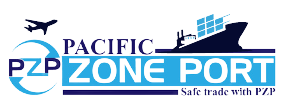
Mark Mc
Shipping tips & tricks for a smoother delivery.
Confused About Air Freight from China to Canada? Get Your Questions Answered Here!
Navigating the intricacies of air freight from China to Canada can be a daunting task. The logistics, regulations, and sheer distance involved in transporting goods across continents can leave many business owners and individuals perplexed. In this comprehensive guide, we will demystify the process, address common queries, and offer valuable insights to streamline your shipping experience.


Understanding Air freight from China to Canada
Air freight is the transportation of goods via aircraft. It’s favored for its speed, reliability, and efficiency, particularly for international shipping. While it can be costlier than other modes of transport, the benefits often outweigh the expenses, especially when time is of the essence.
Why Choose Air Freight?
Several compelling reasons make air freight a preferred choice for shipping from China to Canada:
- Speed: Air freight is significantly faster than sea freight. What takes weeks by sea can often be accomplished in a matter of days by air.
- Reliability: With fixed schedules and fewer delays, air freight offers dependable delivery times.
- Safety: Goods transported by air are subject to stringent security measures, reducing the risk of theft or damage.
Key Players in Air Freight
Understanding the key players in the air freight industry can help you navigate the process more effectively. These include:
- Freight forwarders: are companies that arrange the transportation of goods on behalf of shippers. They handle logistics, documentation, and coordination with carriers.
- Carriers: Airlines that operate cargo flights. Major carriers for air freight from China to Canada include Air China, China Southern Airlines, and Air Canada.
- Customs Brokers: Specialists who assist with customs clearance, ensuring that shipments comply with import and export regulations
Air Freight Process from china to Canada
Shipping goods by air involves several steps, each critical to ensuring smooth transit. Here’s a detailed look at the air freight process from China to Canada:
1. Booking and Documentation
The first step is booking your shipment with a freight forwarder or directly with an airline. Essential documentation includes:
- Air Waybill (AWB): A contract between the shipper and the carrier detailing the shipment and its destination.
Commercial Invoice: A document provided by the seller to the buyer, detailing the goods sold and the terms of the sale. - Packing List: A detailed list of the contents of the shipment, including dimensions, weight, and packaging information.
Customs Documentation: Required for customs clearance, including import/export declarations and any relevant permits or certificates.
2-Pickup and Transportation to Airport
Once the shipment is booked and documentation is in order, the goods are picked up from the supplier’s location and transported to the airport. This is typically handled by a local trucking company arranged by the freight forwarder.
3. Cargo Handling and Security Checks
At the airport, the cargo undergoes handling and security checks. This includes:
- Screening: Ensuring that the shipment is free of prohibited items.
- Weighing and Measuring: Verifying the weight and dimensions of the cargo for accurate billing.
- Labeling: Properly labeling the shipment for identification and tracking.
4. Customs Clearance
Before departure, the shipment must clear customs. This involves:
- Export Customs Clearance: Ensuring the shipment complies with the export regulations of the originating country (China).
- Import Customs Clearance: Ensuring the shipment complies with the import regulations of the destination country (Canada).
5. Air Transport
Once cleared, the cargo is loaded onto the aircraft for transport. Depending on the flight schedule and route, the shipment may be transported directly or through connecting flights.
6. Arrival and Destination Handling
Upon arrival at the destination airport in Canada, the cargo undergoes the following processes:
- Unloading and Handling: The shipment is unloaded and handled by ground staff.
- Customs Clearance: The shipment must clear Canadian customs, facilitated by a customs broker.
- Transportation to Final Destination: Once cleared, the goods are transported to the final destination, whether a warehouse, distribution center, or directly to the buye
Cost Factors in Air Freight from China to Canada
Several factors influence the cost of air freight from China to Canada. Understanding these can help you budget more effectively:
Weight and volume:
Air freight charges are based on the actual weight or volumetric weight of the shipment. Volumetric weight is calculated using the formula:
Volumetric Weight (kg) = length (cm)×Width (cm)×Height (cm) divided by 6000
Distance and Route
The distance between the origin and destination airports, as well as the specific route taken, can impact costs. Direct flights are generally more expensive than those with stopovers.
Type of Cargo
Certain types of cargo, such as hazardous materials or perishable goods, require special handling and may incur additional charges.
Fuel Surcharges and Fees
Airlines often impose fuel surcharges and various fees, including security fees, handling fees, and customs processing fees.
Tips for Reducing Air Freight Costs
While air freight can be expensive, there are strategies to minimize costs:
- Optimize Packaging: Use efficient packaging to reduce volumetric weight.
- Consolidate Shipments: Combine smaller shipments into a larger one to benefit from economies of scale.
- Choose Economical Routes: If time permits, opt for routes with stopovers instead of direct flights.
- Negotiate Rates: Work with your freight forwarder to negotiate better rates, especially for regular shipments.
Common Challenges and Solutions
Shipping by air from China to Canada comes with its own set of challenges. Here’s how to tackle them:
Customs Delays
Customs delays can be a significant issue, especially if documentation is incomplete or incorrect.
Solution: Work with experienced customs brokers and ensure all documentation is accurate and complete.
Capacity Constraints
During peak seasons, such as holidays and major sales events, finding cargo space can be challenging.
Solution: Plan ahead and book shipments well in advance to secure space.
Regulatory Compliance
Navigating the regulatory landscape can be complex, with different rules and regulations in China and Canada.
Solution: Stay informed about regulations and work with experts who understand the compliance requirements.
Damage and Loss
While rare, goods can be damaged or lost during transit.
Solution: Use robust packaging, opt for insurance, and work with reputable carriers and freight forwarders.
FAQs about Air freight from China to Canada
How Long Does Air Freight Take from China to Canada?
Air freight from China to Canada typically takes 5-8 days, depending on factors like flight availability, customs clearance, and final destination.
What Are the Main Airports in China and Canada for Air Freight?
In China, major airports for air freight include Beijing Capital International Airport (PEK), Shanghai Pudong International Airport (PVG), and Guangzhou Baiyun International Airport (CAN). In Canada, key airports include Toronto Pearson International Airport (YYZ), Vancouver International Airport (YVR), and Montreal-Trudeau International Airport (YUL).
What documentation is required for air freight from China to Canada?
Key documents include the Air Waybill (AWB), commercial invoice, packing list, and customs documentation. Additional documents may be required for specific types of goods or special circumstances.
Can I Track My Air Freight Shipment?
Yes, most carriers and freight forwarders offer tracking services. You can track your shipment using the Air Waybill number provided at the time of booking.
What Are the Weight Limits for Air Freight from China to Canada?
Weight limits vary by airline and aircraft type. Generally, there are no specific weight limits, but very heavy or bulky items may require special arrangements.
Conclusion
Shipping goods via air freight from China to Canada is a complex but manageable process. By understanding the key steps, players, and cost factors, and by following best practices, you can ensure a smooth and efficient shipping experience. Whether you are a business owner looking to import goods or an individual needing to transport personal items, this guide provides the essential information needed to navigate the world of air freight with confidence.
Remember, partnering with experienced freight forwarders and customs brokers can significantly simplify the process, helping you avoid common pitfalls and ensuring that your shipments arrive on time and in good condition. Stay informed, plan ahead, and leverage the expertise of industry professionals to make the most of your air freight endeavors.
Sea Freight from China to Canada
Sea Freight from China to Canada Your Cargo’s Journey: A...
Read MoreProcess of Importing Goods from China
Process of Importing Goods from China A Step-by-Step Guide to...
Read MoreFBA Freight Forwarder China
FBA Freight Forwarder China FBA Freight Forwarder China: 5 Things...
Read MoreShip from China to California
Ship from China to California Ship from China to California...
Read More




